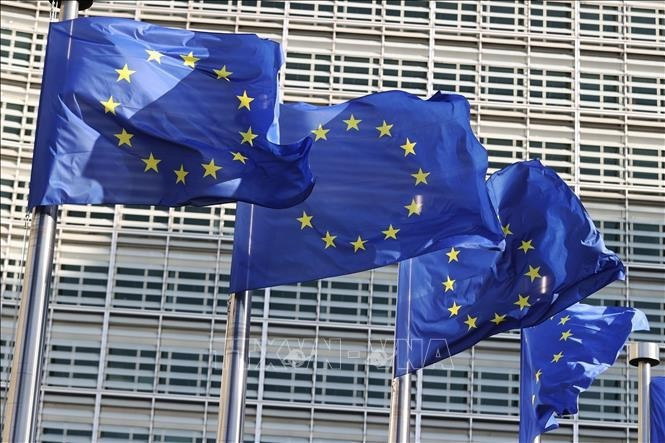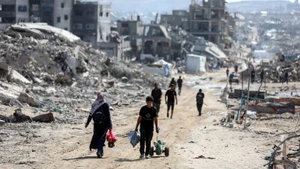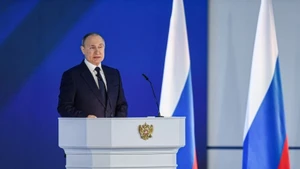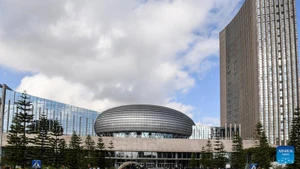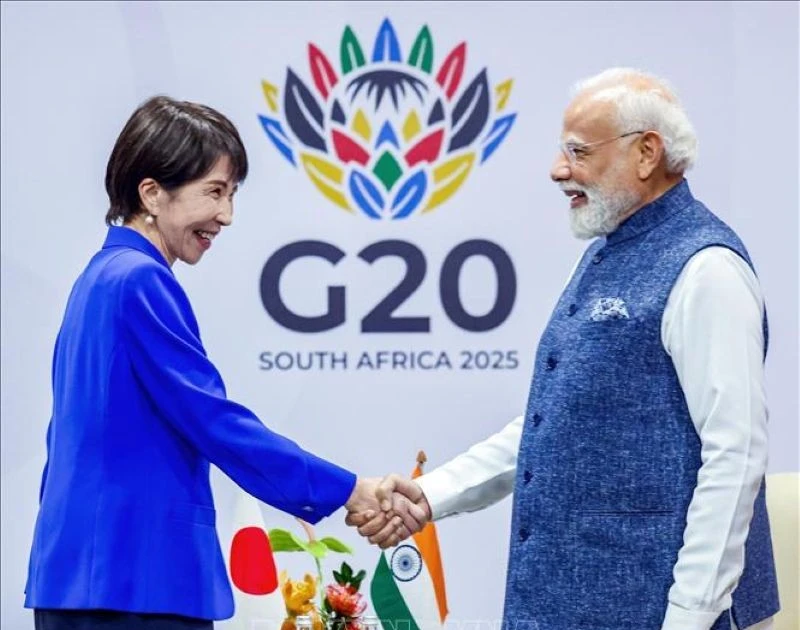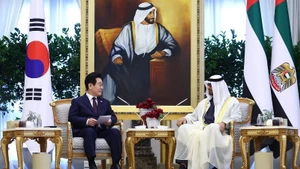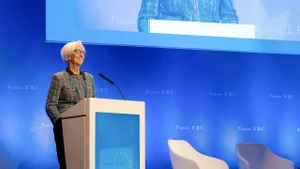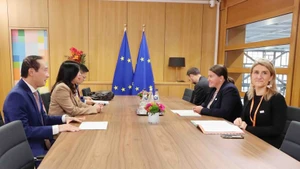The importance of the event was underscored in the invitation letter from President of the European Council, Antonio Costa, who emphasised that this summit would be a significant milestone, focusing on tackling the key issues facing the EU as a shared home.
One of the top priorities at this EU summit was strengthening the bloc’s internal economic power. EU leaders concentrated discussions on reinforcing the single market, advancing economic integration, and improving the investment climate.
The summit explored measures aimed at enhancing the global role of the euro, thereby ensuring the EU economy remains resilient in the face of external geoeconomic shocks. The summit also sought to allay concerns among member states’ leaders regarding trade and tariffs between the EU and the US.
European Commission President Ursula von der Leyen announced that she and US President Donald Trump had agreed, during the G7 Summit, to accelerate negotiations ahead of the set deadline. She clarified that speeding up the negotiations aims to avert the risk of European goods exported to the US being subjected to the new or even higher import tariffs from President Trump.
Defence and security issues continued to spark animated discussion at the summit, particularly as many NATO member states have agreed to increase defence budgets in response to requests from the US.
Concrete proposals were put forward regarding enhancing military capabilities, developing the defence industry, and ensuring sustainable financing for defence operations, reflecting efforts to maintain close cooperation with NATO.
In light of escalating security threats, EU leaders stressed the urgent need to bolster the bloc’s defence capabilities and to enhance its level of strategic autonomy.
A joint statement issued at the EU Summit in Brussels affirmed that Europe must become more sovereign, more responsible for its own defence, and better equipped to act both autonomously and in coordination when responding to immediate and future threats, adopting a comprehensive approach.
The European Council has once again reaffirmed its commitment to strengthening defence capabilities over the next five years, viewing this as a strategic move in the context of profound global geopolitical shifts.
Leaders stressed that a stronger EU in the field of security and defence not only directly supports its member states but also contributes positively to global security and transatlantic relations. While NATO remains the cornerstone of collective defence, the EU asserted its increasingly important role in this domain.
Among the noteworthy developments was the adoption of the Security Action for Europe (SAFE), a large-scale financial framework designed to boost the EU’s defence industry, featuring loans of up to 150 billion EUR to support joint procurement initiatives and the development of military capabilities. Alongside this, the European Council called for increased defence spending, greater integration of the defence market, and a stepping-up of investment in research and innovation.
The summit reaffirmed continued support for Ukraine through defence resources, while simultaneously expressing concern over the humanitarian crisis in the Gaza Strip. The EU urged Israel to fully lift blockade measures to allow aid deliveries into the Mediterranean enclave.
EU leaders also emphasised that Israel must comply with the obligations set out under the EU-Israel Association Agreement, which governs cooperation between the two sides in areas ranging from political dialogue and free movement of goods to scientific collaboration. However, the prospect of suspending the agreement remains unlikely to secure consensus, given the firm stance of certain member states such as Austria, Germany, and Hungary.
In addition to global issues, the summit agenda also focused on internal matters such as migration management and combating organised crime.
With an agenda covering both strategic internal issues and global geopolitical challenges, the outcomes of the EU Summit are deemed to have exceeded expectations, particularly against the backdrop of a complex international situation, significant uncertainties in the global economy, and persistent internal divisions within the EU.
